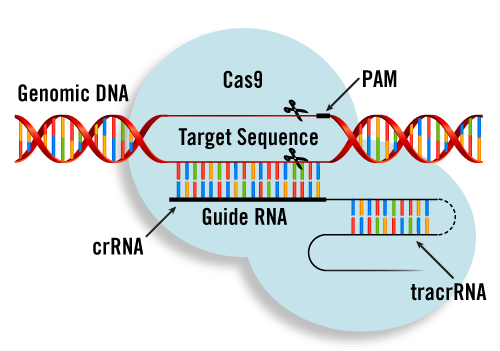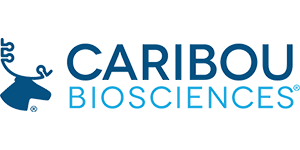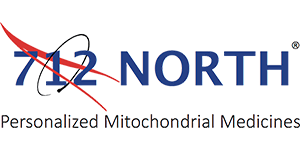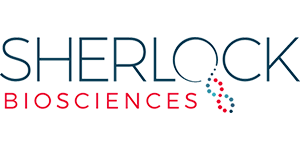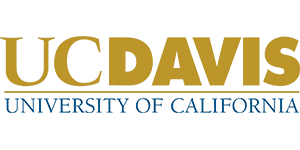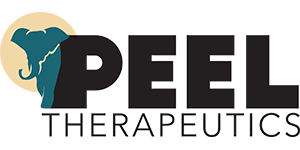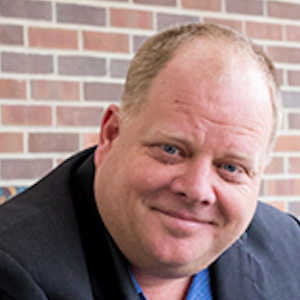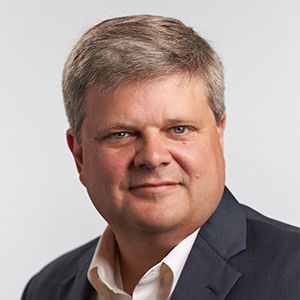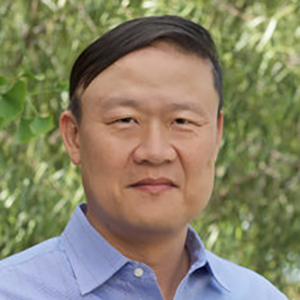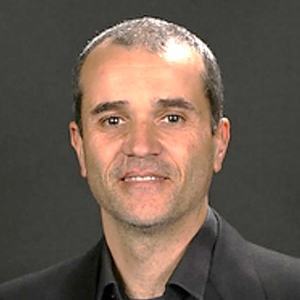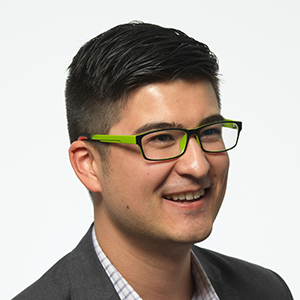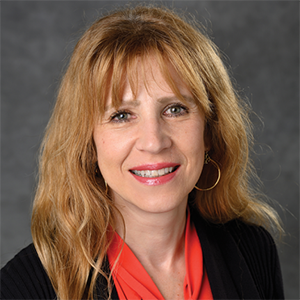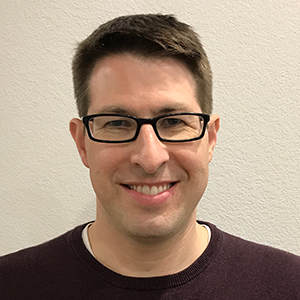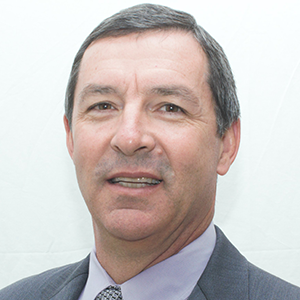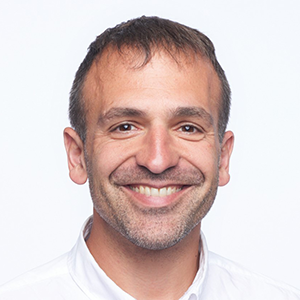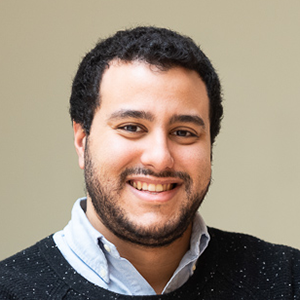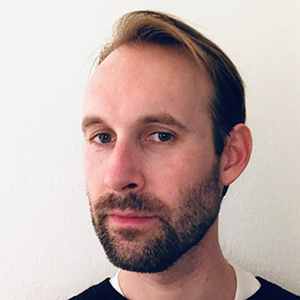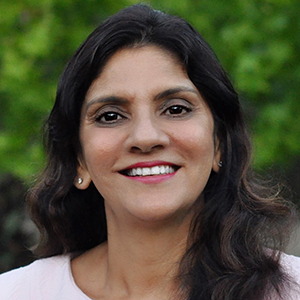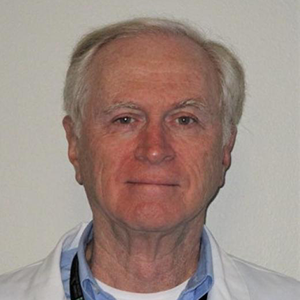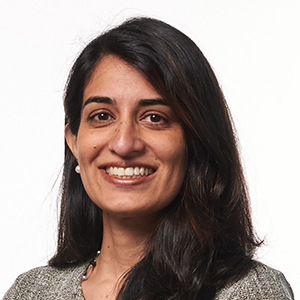The PMWC 2020 Emerging Therapeutics Showcase will provide a 15-minute time slot for selected companies and researchers in the CRISPR, Cell and Gene Therapy fields. Major advancements in safer cell- and gene-level editing technologies are bringing us closer toward cures for life-threatening disorders, from cancer to HIV to Huntington’s disease. Cell therapy, in which cellular material such as T cells capable of fighting cancer cells, is injected into a patient, has been demonstrated safe and effective. The popular new CRISPR tool that has been used to edit the genetic code of nearly any organism will have an enormous impact on human health. More than a dozen clinical trials employing CRISPR on human cells are already underway.
Confirmed Presenting Companies:
Speaker Profile
Biography
Dr. Olin is an Assistant Professor in the Department of Pediatrics, Division of Hematology/Oncology. Dr. Olin graduated from the University of Minnesota, Duluth, in 1995 with a BS in biochemistry and Hydrogeology, a BA in chemistry. After graduating, he worked in industry for 5 years before returning to the U of M to complete his PhD in Veterinary Medicine (Infectious Disease) in 2005. From 2006-2008 Dr. Olin did a postdoctoral fellowship studying the effects of opioids on tuberculosis meningitis, and from 2008-2011 he did a second post doctoral fellowship in brain tumor immunotherapy. Dr. Olin joined the Department of Pediatrics Faculty as an Assistant Professor in 2011. In 2016, Dr. Olin opened a pharmaceutical company OX2 Therapeutics, to raise capital allowing him to develop and test his novel CD200 inhibitor.
Emerging Therapeutics Showcase:
OX2 Therapeutics
OX2 Therapeutics was established in 2016 in order to make a transformative impact in the treatment of Primary Brain Tumors.
CD200-Ligand Overpowers CD200, PD-1 And CTLA4 Checkpoints
We discovered the molecular connection between the CD200, PD-1 and CTLA4 check-points. We demonstrated our CD200 peptide ligand induced cytokine production and up-regulates CD80/86 and MHC-II. In addition, the CD200-ligand overpowered CD200 and PD-L1 immunosuppression, downregulated PD-1 on antigen-presenting and T-cells and down-regulated PD-L1 on antigen-presenting cells inhibiting CTLA4 upregulation.
Speaker Profile
Biography
Jason Christiansen has served in multiple positions leading the development of new technologies and strategies for their research and diagnostic use. He has served as Head of Assay Development at Roche Sequencing Solutions, providing leadership in initiatives around oncology testing, Dx development, NIPT testing and platform development. Prior to Roche, Jason was VP of Diagnostics at Ignyta, where he led CDx development efforts including an in-house CLIA laboratory and molecular testing R&D group working both internally and externally to drive molecular testing in support of a global clinical trial for entrectinib. Prior to Ignyta, Jason served in multiple senior positions developing new platforms and technologies in NGS, digital pathology and molecular testing so that they could be brought into the clinical laboratory for patient testing and to support drug development.
Emerging Therapeutics Showcase:
Boundless Bio, Inc.
Boundless Bio, is a San Diego based company discovering and developing novel cancer therapeutics based on the role of extrachromosomal DNA (ecDNA) in driving tumorigenesis, resistance and recurrence.
Targeting Extrachromosomal DNA (ecDNA), A New Approach To Targeting Cancers With High Copy Number Amplification
Cancers driven by genetic amplification are dominated by poor prognosis and have been a problematic target for therapeutics to date. However, the recent elucidation of ecDNA as a mechanism for supporting high copy number cancers and driving tumor heterogeneity has also provided insight on previous therapeutic failures and new avenues for potential treatment. Using multiple laboratory approaches, new ecDNA specific targets can be identified to precisely select patient groups and provide new treatments.
Speaker Profile
Biography
Dr. Wang is the CEO of Refuge, a company he co-founded following nearly a decade of life science investment banking experience. He most recently served as director of healthcare investment banking at Barclays Capital, where he served as strategic financial advisor and helped raised capital for companies in the healthcare industry. Dr. Wang, a cancer survivor who is passionate about bringing forth “smarter” medicines that will transform cancer care, earned a B.S. in Applied Physics from Columbia University, an MBA from Columbia Business School, and a Ph.D. in Electrical Engineering from Princeton University.
Emerging Therapeutics Showcase:
Refuge Biotechnologies
Refuge is leveraging gene engineering technologies known as CRISPR interference (CRISPRi) and CRISPR activation (CRISPRa) to develop therapeutic cells that are programmed to make decisions inside the patient’s body.
Designing Intelligent Cell Therapies To Fight Cancer
Refuge Biotechnologies leverages synthetic biology technologies known as CRISPR Interference/activation to develop therapeutic cells programmed to make decisions inside a patient’s body.
Speaker Profile
Biography
Dr. Donato Tedesco received his B.S. in Molecular and Cell Biology from La Sapienza University of Rome, Italy; followed by his doctoral degree in Biotechnology from the same institution in 1998. During that time, he studied the genetic mechanisms underlying tumorigenesis, with a focus on the identification of key regulators of the cell replication cycle G1/S and G1/G0 transitions. During his post-doctoral position in the Reed lab at the Scripps Research Institute, he studied the role of protein ubiquitylation in cancerogenesis. Between 2005-2007, he worked for Berlex/Schering AG on several projects aimed at the identification of targets for small molecule anti-cancer drugs in the ubiquitin/proteasome protein degradation pathway. In late 2007, Dr. Tedesco joined Cellecta where he has been responsible for the development and validation of the DECIPHER RNAi screening platform (www.decipherproject.net), and of the company’s CRISPR product and services portfolio.
Emerging Therapeutics Showcase:
Cellecta Inc.
A functional genomics solutions provider, focuses primarily on developing and implementing flexible and scalable broad-based screening and analysis approaches for drug target and biomarker discovery.
Clonal Analysis And Genetic Screening At A Single-Cell Level
Novel methods for profiling clonal composition and phenotypes of primary and metastatic lesions at the single-cell level are required to better understand tumorigenesis and develop anti-cancer drugs with unique mechanisms of action. To this end, we show how combining a genetic screen with cell barcoding can significantly improve gene function analysis in cancer cell models.
Speaker Profile
Biography
The driving force behind a new microbiome therapeutics company, AsiaBiome, leading a mission to find cures for tough diseases, including IBS, Autism, Parkinson’s and Multiple Sclerosis. Jonathan helped secure for AsiaBiome exclusive rights to a network of microbiome samples and data from Asia. He also led his company into JnJ’s JLABS, Startup+Health, and secured first financial backing by 500 startups. With this support, AsiaBiome has already identified their first microbial formulation to treat IBS and have ongoing clinical research in Autism, MS, and ALS. Previously, Jonathan was a senior investment manager for a Chinese healthcare conglomerate, focusing on hospital and pharmaceutical investment projects. He is originally from California, raised by entrepreneurs, and has spent close to a decade in Beijing and Hong Kong. He is fluent in Mandarin and English.
Emerging Therapeutics Showcase:
AsiaBiome
AsiaBiome is a leading biotechnology company focused on microbiome-based therapeutics. Building Asia's first comprehensive microbiome drug discovery platform technology.
Asian Microbiome: A new Therapeutics Discovery Opportunity
Almost 90 percent of translational microbiome research is focused on the Western gut microbiome. AsiaBiome has created the first horizontally integrated microbiome discovery platform in Asia. The company has linked together a microbiota bank, clinical network, and R&D discovery platform to launch microbiome products for both the Asia and global markets.
Speaker Profile
Biography
Dr. Anna Moore has recently joined Michigan State University (MSU) the Professor of Radiology and Physiology at the Department of Radiology, College of Human Medicine. She is the Director of Precision Health Program and the Assistant Dean at the College of Human Medicine. Prior to joining MSU, she was a Professor of Radiology at Massachusetts General Hospital (MGH)/Harvard Medical School. Dr. Moore received her M.S. degree in Chemistry from Moscow State University (Russia) and obtained her Ph.D. degree in Bioorganic Chemistry from the Institute of Biochemistry, Russian Academy of Sciences. Her research is aimed at developing molecular imaging theranostic agents for cancer imaging and therapy. She is a co-founder of TransCode Therapeutics, a company that is aimed at bringing these therapies into clinic. Dr. Moore is a recipient of multiple grant awards from the NIH and other funding agencies and published her work in the most prestigious journals including Nature, Nature Medicine, Nature Biotechnology, PNAS and others. Dr. Moore has served as a Member of the Affiliated Faculty of Harvard-MIT Division of Health Sciences and Technology. For her contribution to teaching courses at international meetings she was awarded with the “Outstanding Teacher Award” from the International Society for Magnetic Resonance in Medicine (ISMRM). She was elected twice as a Chair of the Cellular and Molecular Imaging study group at this society. She was awarded a Distinguished Investigator Award from the Academy of Radiology Research in 2014. She served two terms as a Member of the Board of Trustees and the past Treasurer of the World Molecular Imaging Society (WMIS). For her service to the Society Dr. Moore was elected as a Fellow of the World Molecular Imaging Society.
Emerging Therapeutics Showcase:
Michigan State University
By redefining health and disease we can drive medicine toward health and away from treating symptoms. In this way, we refocus medicine on the restoration of health rather than amelioration of symptoms.
Image-Guided Therapy For Metastatic Breast Cancer
This talk will cover a new therapy for treating metastatic breast cancer based on silencing microRNA-10b responsible for viability of meta-static cells. Pre-clinical studies showed elimination of established metastasis in mice using image-guided nanoparticles conjugated to anti-miR-10b antisense oligonucleotides. Studies in large animals are under way; human clinical trials are to follow.
Speaker Profile
Biography
Peter Cameron is the head of Technology Development at Caribou Biosciences, Inc. where he leads efforts to develop novel technologies for precision genome editing. He earned his Ph.D. in Molecular and Cellular Biology from the University of California, Berkeley and did postdoctoral work at The Scripps Research Institute in San Diego, where he developed novel genetic tools to manipulate neural circuits in the mouse brain. Following that, he was hired as a Scientist at Caribou, where he initially worked on a comprehensive, genome-wide method to measure CRISPR-Cas9 specificity (Cameron et. al., Nature Methods, 2017). More recently, Peter has worked on characterizing and optimizing multiple CRISPR-Cas systems for use as genome editing tools in human primary cells.
Emerging Therapeutics Showcase:
Caribou Biosciences
Caribou Biosciences, Inc. is a pioneer in genome editing, advancing the development of CRISPR-Cas technologies across many applications. Caribou is focused on the pre-clinical development of allogeneic immuno-oncology cell therapies and targeted engineering of gut microbes for the treatment of cancer.
Precision Genome Editing With Next-generation CRISPR-Cas9 Technology
In order to safely deploy genome editing for human therapeutics, we have developed high specificity CRISPR hybrid RNA-DNA (chRDNA) guides. Here, we will discuss implementing this technology to develop allogeneic immuno-oncology cell therapies.
Speaker Profile
Biography
Having served as Chief Financial Officer for a variety of both public and private life sciences companies, Russell Skibsted brings over 25 years’ life sciences business experience to AgeX. Prior to joining AgeX, he was CFO of AgeX’s former parent company, BioTime, Inc (now Lineage Therapeutics), which he joined in November 2015. Prior to BioTime he was CFO at Proove Biosciences, a commercial-stage diagnostics and personalized medicine company. Before that he was Senior Vice President, CFO, and Secretary of Aeolus Pharmaceuticals, a biotechnology company that received over $150M in government funding in the biodefense and oncology sectors. Mr. Skibsted also served as SVP and Chief Business Officer of Spectrum Pharmaceuticals, a commercial-stage pharmaceutical company, and CFO of Hana Biosciences. Earlier in his career, Mr. Skibsted was Partner and CFO at Asset Management Company, one of the oldest and most respected venture capital firms in Silicon Valley.
Emerging Therapeutics Showcase:
AgeX Therapeutics, Inc.
AgeX Therapeutics developments novel therapeutics targeting human aging, developing medicines designed to address large unmet medical needs.
Speaker Profile
Biography
Dr. Alavi founded 712 North in 2016 based on his unique insights into the mitochondrial biology in health and disease. Dr. Alavi is an inventor and has co-authored more than 20 peer-reviewed scientific publications. He holds a Ph.D. with summa cum laude from the Eberhard-Karls University Tübingen in Germany and completed postdoctoral training at UCSF, where his research centered on stress response pathways in the eye. He founded two early stage biotech companies and is a member of the Scientific Advisory Board of the Autosomal Dominant Optic Atrophy Association, ADOAA.
Emerging Therapeutics Showcase:
712 North Inc.
712 North is a pre-clinical stage pharmaceutical company based in California. We develop personalized mitochondrial medicines for a range of age-related diseases such as Alzheimer's, cancer, glaucoma, and cardiovascular disease.
Advancing Personalized Mitochondrial Medicines
Epidemiological data revealed an inverse correlation of Alzheimer’s disease and cancer, which suggests a carefully maintained balance tips over time. Mitochondria are at the intersection of both diseases and can explain the inverse correlation of both diseases. This implies each of us requires an individual adaption of this mitochondrial balance as we age. A pledge for personalized mitochondrial medicines.
Speaker Profile
Biography
Omar Abudayyeh’s laboratory at MIT focuses on exploring microbial diversity for new biotechnological tools related to genome editing and gene delivery. He co-led the discovery and characterization of multiple landmark pieces of work, including uncovering novel CRISPR enzymes beyond Cas9 for biotechnological applications like the SHERLOCK technology for CRISPR diagnostics and a new set of tools for precise editing of transcripts and visualizing them in mammalian cells for RNA therapeutics. He previously was at Harvard Medical School and the Harvard-MIT Health Sciences and Technology program as a graduate student. He completed his doctoral work in Feng Zhang’s lab at the Broad Institute of MIT and Harvard. In recognition of his technology developments, Dr. Abudayyeh was recognized as 2018 Forbes 30 under 30 in Science and Health Care and Business Insider 30 under 30. Dr. Abudayyeh graduated from MIT in 2012 with a B.S. in mechanical engineering and biological engineering, where he was a Henry Ford II Scholar and a Barry M. Goldwater Scholar.
Emerging Therapeutics Showcase:
Sherlock Biosciences
Sherlock’s diagnostic tests can be used in many applications and settings. We intend to leverage this versatility, and work with partners to develop, validate and commercialize tests for clinical and non-clinical settings and with diverse applications.
Speaker Profile
Biography
Jason Steiner, Ph.D., leads Synthego’s business strategy and partnerships to enable biotech and pharmaceutical companies to leverage Synthego’s genome engineering platform to accelerate research, discovery, and development of gene therapeutics. Before Synthego, Steiner spent several years in the clinical genomics space commercializing liquid biopsy technologies in reproductive genetics and oncology. He holds a doctoral degree in materials science engineering from the University of California, San Diego, where his research focused on the development of nanoparticle delivery systems for therapeutics and diagnostics in oncology. Steiner’s commercial experience spans across market development and product launches across four continents, building and scaling commercial organizations across marketing, product development, sales, and business development. As an example, during his tenure at Natera, the company’s revenue nearly quadrupled. Steiner also has served as the CEO of a non-profit entity focused on entrepreneurship. His dedication to biotechnology is inspired by mission-driven travels, writing, and business ventures.
Emerging Therapeutics Showcase:
Synthego
Dr. Jason Steiner, Head of Business Strategy at Synthego, a leading genome engineering company focused on accelerating therapeutic discovery and development will discuss the impact of new genomic engineering technologies on economics, timelines, and scope of traditional pharmaceutical development in contrast with the rise of cellular and genetic therapies.
Flipping The Development Funnel -- How Genome Engineering Is Disrupting Therapeutics Discovery And Development
Speaker Profile
Biography
Shabnam Tangri is an accomplished R and D leader with more than 20 years of experience in the development of bioanalytical, biomarkers and diagnostic strategies for drug development. Shabnam holds a Ph.D in immunology followed by postdoctoral training at UCLA. In her current CSO role, she leads a large scientific and operational team that develops and implements protein and genomic-based biomarker solutions for Pharma/ biotech companies. Shabnam’s team has contributed to several drug and diagnostic approvals over the years such as CAR-T, Inotozumab, Tysabri, PI3Kinase inhibitors and first NGS companion diagnostic for lung cancer. Most recently she was responsible for establishing the clinical trial center of excellence at Navigate BioPharma (A Novartis Company) which currently supports >100 clinical trials. Shabnam has authored multiple peer-reviewed publications, guidance documents and patents over her career in immunology, translation sciences, flow cytometry and biomarker diagnostics and immuno-oncology.
Emerging Therapeutics Showcase:
Navigate BioPharma
Provides Innovative and differentiated Biomarker and diagnostic solutions for drug development.
High Dimensional Flow Cytometry In Immuno-oncology
This presentation will describe the utilization of high dimensional flow cytometry as a differentiated tool for performing clinically meaningful immune characterization for Immuno-oncology drug development.
Speaker Profile
Biography
Dr. Lloyd is an expert in mouse biology and genetics, with specific training and expertise in production and phenotyping of next-generation animal models for functional analysis of patient-specific disease biomarkers and characteristics. He applies contemporary genome editing (CRISPR/Cas9) and phenotyping tools to conduct in vivo analysis to unveil pathophysiological mechanisms and accelerate diagnosis by differentiating causative from correlative factors of disease. He serves as Director of the UC Davis Mouse Biology Program (MBP), in which he oversee the development, manipulation, and study of transgenic and genetically-altered mutant mice as models of human disease and genetic variation. He also serves as Principal Investigator and Project Director of the Knockout Mouse Project (KOMP), the Mutant Mouse Regional Resource Center (MMRRC), the Mouse Metabolic Phenotyping Center (MMPC), and the Mouse Biology Shared Resource for the NCI-designated Comprehensive Cancer Center at UC Davis.
Emerging Therapeutics Showcase:
University of California, Davis
The UC Davis Mouse Biology Program is an academic one-stop resource for the creation, testing, and care of mouse models of human biology and disease.
Speaker Profile
Biography
Dr. Schiffman is the CEO and Co-Founder of PEEL Therapeutics, delivering evolution-inspired medicine to patients. He also co-founded ItRunsInMyFamily.com, an online family history collection tool. Dr. Schiffman is a Professor of Pediatrics and Investigator at Huntsman Cancer Institute at the University of Utah and the Medical Director for the Family Cancer Assessment Clinic. He also works as a Pediatric Hematologist-Oncologist at Intermountain Primary Children’s Hospital in Salt Lake City, Utah. Dr. Schiffman graduated from the Brown University School of Medicine in 2000, followed by clinical training in Pediatrics and Pediatric Hematology-Oncology at Stanford University from 2000-2008. His academic research and now commercial efforts focus on genomic development of cancer in children and studying animals that naturally are protected from cancer, like elephants. Dr. Schiffman has co-founded several exciting new startup companies to impact cancer diagnosis, treatment, and prevention.
Emerging Therapeutics Showcase:
PEEL Therapeutics
PEEL Therapeutics, Inc. is an emerging biotech that delivers evolution-inspired medicines to improve patient lives. The PEEL pipeline originates from assets inspired by the evolution of elephants, plants, and humans for the treatment of cancer and a wide range of inflammatory diseases.
Delivering Evolution Inspired Medicines For Patients
Modern lifestyle results in diseases like cancer, CVD, and diabetes. Through evolution, nature has avoided many of these same diseases in plants and animals (elephants prevent cancer, bears hibernate without diabetes or heart disease, dolphins dive thousands of feet without blood clots). PEEL Therapeutics is using cutting-edge nanotechnology to develop new medicines and translate evolution's molecules into bioavailable, life-saving drugs. This presentation will cover PEEL's pipeline including new drugs based on the evolution of elephants, plants, and humans for the treatment of cancer and a wide range of inflammatory diseases.
Speaker Profile
Biography
Tooba Cheema is currently leading the translational research and biomarker strategy for viral immunotherapies for Oncorus’ oncolytic virus candidates into the clinic. Tooba is an experienced immuno-oncologist advancing projects from early discovery, lead selection through translational medicine and clinical development. Prior to Oncorus, Tooba led the non-clinical pharmacology and translational efforts advancing T cell therapies in combination with antibodies for hematological malignancies and solid tumors at Unum Therapeutics through submission of multiple Investigational New Drug Applications (IND). At Momenta Pharmaceuticals, she contributed to the non-clinical biological characterization of biologics and biosimilars for autoimmune and oncology indications. Tooba received her post-doctoral training at Massachusetts General Hospital under the fellowship from the American Brain Tumor Association, evaluating combination therapies with oncolytic virus for the treatment of Glioblastoma. Tooba has a Ph.D. in Pharmacology from the University of Michigan-Ann Arbor and B.Sc in Biochemistry from Tufts University.
Emerging Therapeutics Showcase:
Oncorus
Oncorus is advancing a robust portfolio of locally and systemically administered oncolytic virus therapies across our Herpes Simplex Virus (HSV) and Synthetic Virus Platform to transform outcomes for cancer patients.
Development Of ONCR-177 Viral Immunotherapy For Cancer
ONCR-177 is a novel oncolytic Herpes Simplex Virus that carries 5 immune payloads for the treatment of surface and visceral lesions of solid tumors. Promising non-clinical pharmacology data will be presented that warrants it’s translation into the clinic.






